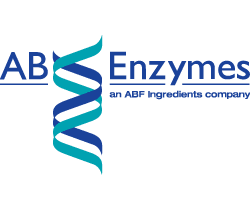AB Enzymes – Success Story

AB Enzymes, headquartered in Darmstadt, Germany, is a globally operating biotech company specializing in enzyme manufacturing. As a subsidiary of British Foods, AB Enzymes focuses on the production of high-quality, natural enzymes and their applications. The core emphasis of AB Enzymes lies on strong partnerships and optimal solutions for products and applications. Since 1907, AB Enzymes has been developing, producing, and supplying enzyme preparations for industrial applications, including:
- Baking, milling, and pasta production
- Pulp and paper industry
- Grain and oilseed processing
- Detergents
- Protein processing and modification
- Fruits, vegetables, juices, and wines
- Textiles
- Animal feed
As an implementation partner, a new CRM system based on SugarCRM was successfully introduced. Prior to project commencement, AB Enzymes already had well-documented processes. The deployment of SugarCRM enabled AB Enzymes to increase efficiency and reduce the time spent by sales staff on administrative tasks. The following guiding principles were defined for the project implementation:
- KISS – Keep it simple and stupid
- Have a plan
- Internal champions available
- Establish professional change management
- Have happy users

Enzymes for the Food Industry
At a glance:
| Company: | AB Enzymes |
| Industry: | Food |
| Employees: | 310 |
| Number of users: | 65 |
| Implementation duration: | 6 months |
Project objectives:
- Unified data management
- 360° reporting
- Simplified integrated planning
- Sustainability of the CRM implementation
Highlights:
- Master data management
- Quote process
- Opportunity tracking and pipeline management
- Demand planning
- Custom dashboards by region
- SAP product catalog integration in CRM
KINAMU solution implemented:
- KINAMU SAP ERP / SugarCRM Connector
Website:AB Enzymes
Project Guiding Principles
KISS – Keep it simple and stupid
The main challenge was to address users’ needs effectively while enabling professional change management within the project.
Thus, the first phase focused on implementing a CRM system that is as user-friendly as possible. Core processes, already in place, were migrated into the CRM environment to leverage the benefits of shared data management within the CRM system: master data management, duplicate checks, plausibility checks, reminders, workflows, and Outlook integration.
Have a plan
The most important factor in CRM implementation was having a solid plan to keep the defined objectives in focus. Not only were processes discussed and defined beforehand, but all aspects and dependencies were thoroughly considered. Workshops, planning hours, and data design sessions before the project saved weeks of time and effort later on. The plan covered not only the target state (goals) but also all aspects (milestones, tests, continuous alignments) necessary to achieve the goal:
- Project team with clearly defined roles
- Timeline with milestones
- Defined processes, clean and future-proof data design
- Definition of interfaces and dependencies
- Data import strategy – an excellent opportunity to improve data quality, clean data, and enrich data (e.g., by introducing new classifications)
- Well-structured test plan
- User-adapted training strategy
- Ongoing user support plan, extending beyond training and GoLive
- Well-prepared GoLive
Without a plan, time or objectives could quickly be lost sight of. The plan and all milestones, including a small buffer, were closely coordinated with AB Enzymes using JIRA and an agile SCRUM approach. The successful implementation confirms this concept.
Internal champions
Building internal champions and advocates was a crucial and important step in the CRM rollout. Users who recognized and wanted to leverage the added value were identified. These champions shared their positive experiences with other team members. Champions were identified based on:
- Positive attitude regardless of change
- Support for CRM implementation
- Proactive about improvements and engagement
- Curiosity about CRM and its usefulness
Champions who understand the value of CRM support the project team during rollout, especially regarding the training strategy, provide feedback on content clarity, and help pass on knowledge. Because champions view change positively, other users readily seek their assistance, greatly contributing to system acceptance.
Change management
Change is not always welcomed by everyone. Some users view changes with skepticism. The most common reasons for rejecting CRM are:
- Lack of involvement in the CRM selection process
- Insufficient training and communication
- Product functionality not meeting expectations
- Lack of internal success and/or champions
Successful change management is always challenging and requires patience from all parties. During the project, it was vital for users to feel heard, and their concerns and needs taken seriously. Open communication was maintained throughout, including weekly calls with project leadership and regular software reviews by CRM champions and key users.
The following contributed to the project’s success:
- Early involvement of users in decision-making and gathering feedback and key information
- Using feedback to turn a well-planned CRM system into a user-friendly, well-functioning system that reduces workload and supports daily activities optimally
- Clear and transparent communication: project plan and milestones were shared early and users were involved at every stage
- Training materials tailored to user needs, with separate sessions for marketing and sales users
- Ongoing measurement of acceptance post-GoLive through simple metrics at 1, 3, and 6 months, such as:
- Number of companies, contacts, and sales opportunities created
- Number of activities (meetings, tasks, calls) logged and updated in the CRM
- User logins and average time spent in the CRM
- Regional metric analysis
Happy users
Happy CRM users contribute significantly to the success of a CRM implementation. Satisfied users who experience appreciation from management and the CRM project team frequently provide feedback and help to positively develop the CRM system. It was important to involve users in every single project phase:
- The first 90 days after the go-live were the most important during the introduction. Enough time was planned for interaction with users. There was a specially set-up hyper-care phase, in which users were offered support even after training and go-live. This ongoing support contributed significantly to success. Weekly one-hour online sessions were offered every Tuesday morning and evening, where users had time to ask questions and receive answers.
- Positive feedback and appreciation were very important in the project.
- A dedicated "Champions Program" (Key-User) was established to recognize and reward users with high usage and effective acceptance.
- Ongoing evaluation of product functionality and user-friendliness to ensure the CRM meets specific business requirements.
- Ongoing monitoring of acceptance and usage by evaluating the right metrics such as user logins and detailed usage metrics.
- Even if acceptance is high after implementation, processes can change. Therefore, we recommend our clients actively engage with new developments in the CRM area, such as new features and updates, and remain open to feedback.
The following processes were implemented within the project:
1. Master Data Management – Synchronization with SAP ERP
Synchronization of customer data and product information between SugarCRM and SAP ERP. SAP is the leading system. Once data is created in SAP, it is managed centrally in this system and synchronized to SugarCRM.
2. Quote Process
Simple and fast creation of professional quotes. Each quote is personalized to the customer.
To make creating quotes as easy as possible, data available in the CRM such as salutation (title, first name, last name) is taken from the contact record. Other data such as company name, company logo, payment terms, and delivery terms come from the company master record.
3. Opportunity Tracking and Pipeline Management
By maintaining sales opportunities, regional managers and the sales director can very efficiently coordinate the probability of open deals, their phase, and activities of individual sales and key account managers.
4. Demand Planning
Based on the products in the pipeline, the probability, and the closing date, supply channel management can carry out demand planning promptly and efficiently.
The current SugarCRM system digitizes and accelerates existing processes and makes them easily analyzable across different worldwide organizational units.
In the near future, further expansion of the SugarCRM application to other organizational units and further process integrations with SAP ERP are planned.